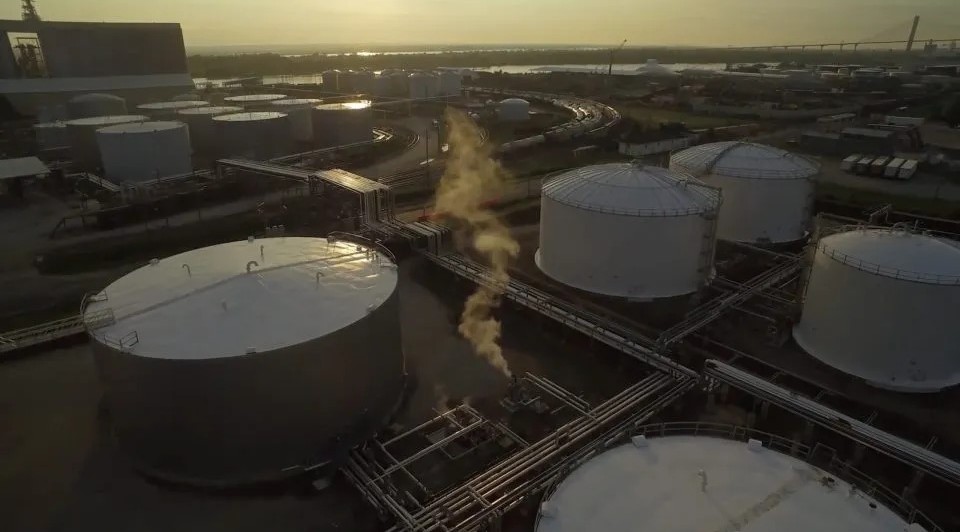Savannah’s Colonial Oil targeted by feds over Clean Air Act violations

The Justice Department and Environmental Protection Agency (EPA) are seeking $2.8 million in civil penalties from a major Savannah importer and producer of diesel and gasoline fuel, Colonial Oil Industries, Inc. The company will also be required to spend $12.2 million to purchase and retire credits aimed at reducing greenhouse gas emissions.
Colonial Oil is a subsidiary of Savannah-based Colonial Group, which also includes Enmarket, a chain of 130 gas and convenience stores; and Colonial Terminals among other companies. Colonial has oil facilities in Savannah and Jacksonville, Fla. According to the EPA, the company failed to follow rules meant to encourage the use of renewable fuels under an amendment to the Clean Air Act.
The company declined to comment Thursday, but has already signed on to a proposed consent decree from the government. The agreement is not final until the conclusion of a 30-day public comment period, which federal regulators will review before moving forward. Information on submitting comments is available on the Justice Department’s website: www.justice.gov/enrd/consent-decrees.
Between 2013 and 2019, Colonial excluded certain fuel it supplied to marine vessels from its calculations of renewable volume obligations in violation of the Clean Air Act’s Renewable Fuel Standards, the EPA alleges. Fuel intended for use only in ocean-going vessels is not required to be included in the calculation. But Colonial also excluded 100 million gallons of diesel supplied to marine vessels that were not ocean-going, according to EPA. That meant it used less renewable fuel than required, causing increased greenhouse gas emissions.
“The creation and use of renewable fuels reduces overall greenhouse gas emissions,” Assistant Attorney General Todd Kim of the Justice Department’s Environment and Natural Resources Division said in a press release. “This proposed settlement will hold Colonial to the same renewable fuel requirements that all importers and producers must adhere to.”
“Renewable fuels play a critical role in diversifying our country’s energy mix and reducing greenhouse gas emissions, all while providing good paying jobs and economic benefits to communities across the country,” said Assistant Administrator David M. Uhlmann of the EPA’s Office of Enforcement and Compliance Assurance. “This settlement once more puts gasoline and diesel refiners and importers on notice that they must meet their obligations to reduce climate- and health-harming pollution and that there will be consequences if they do not.”
Colonial also sold over a million gallons of gasoline that failed to meet the volatility standard intended to reduce emissions from evaporation during the summer, EPA said. The more volatile gasoline contributes to smog and worsens ozone-related health problems such as asthma, emphysema and chronic bronchitis.
The settlement requires Colonial to purchase and retire credits to meet their previously unmet renewable volume obligations. The credits must be purchased within two years at an estimated cost of $12.2 million. The credits are estimated to result in over 18,300 metric tons of carbon dioxide equivalent reductions which equates to offsetting emissions from powering 2,386 homes or driving 4,355 gasoline cars for a year.
Colonial Group is one of the largest privately held companies in the U.S., employing over 1,800 people, the company states on its website where it also touts its embrace of renewable diesel.
“Colonial Oil is proud to share that we are now leading the energy transition in our region by providing renewable diesel (R99) as the first distributor on the East Coast,” the site boasts.
The EPA has signed two other Clean Air Act settlements so far this year. In January, California-based Cummins, Inc. agreed to pay a $1.675 billion penalty, the largest civil penalty in the history of the Clean Air Act and the second largest environmental penalty ever. Cummins also funded $326 million in emission mitigation projects and the recall program for the affected vehicles. In February, Apache Corporation agreed to pay $4 million in civil penalties and undertake projects expected to cost at least $5.5 million to ensure its oil and gas well pads in New Mexico and Texas comply with federal and state clean air regulations and offset past illegal emissions.
This story was provided by WABE content partner The Current.








